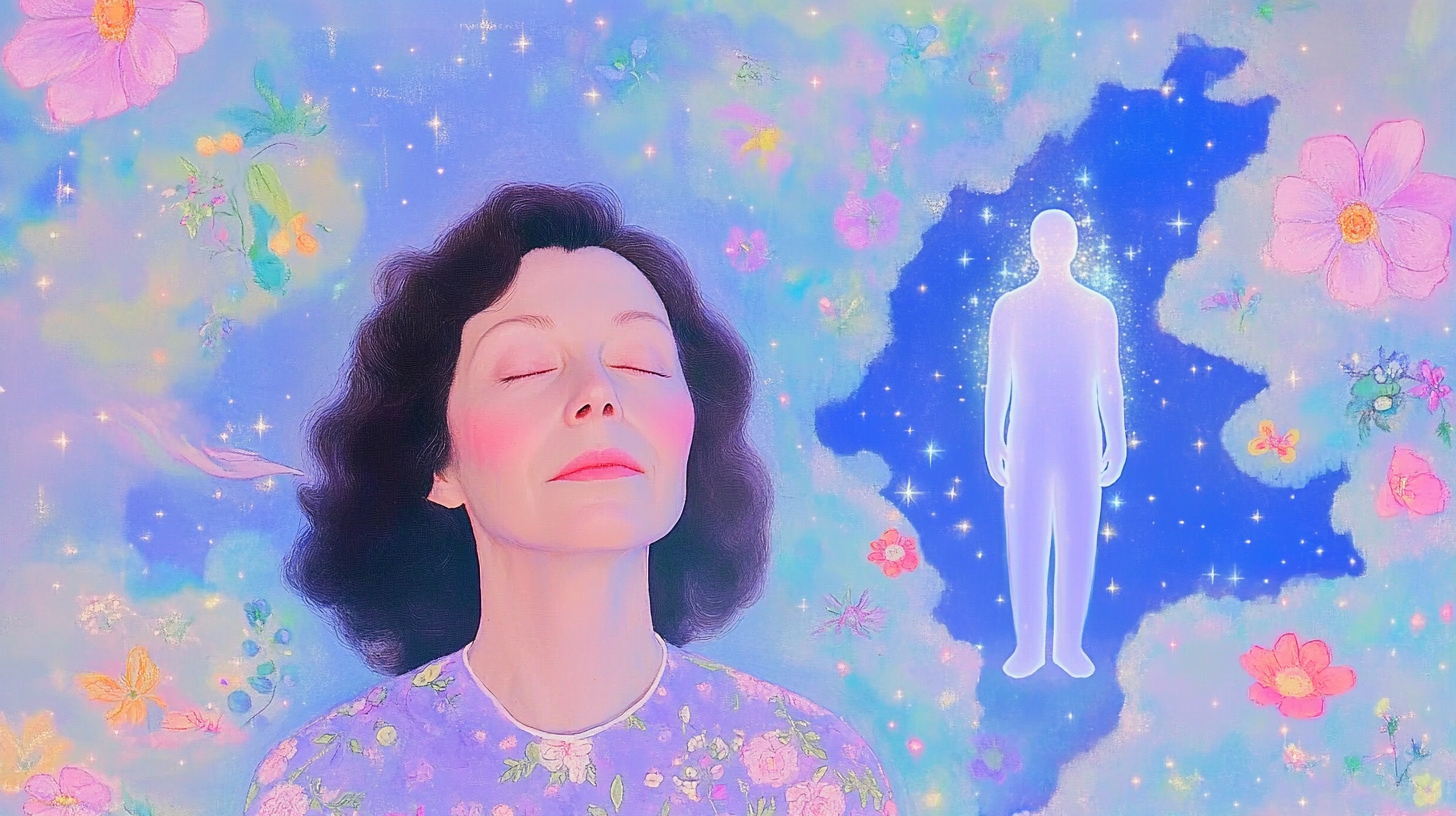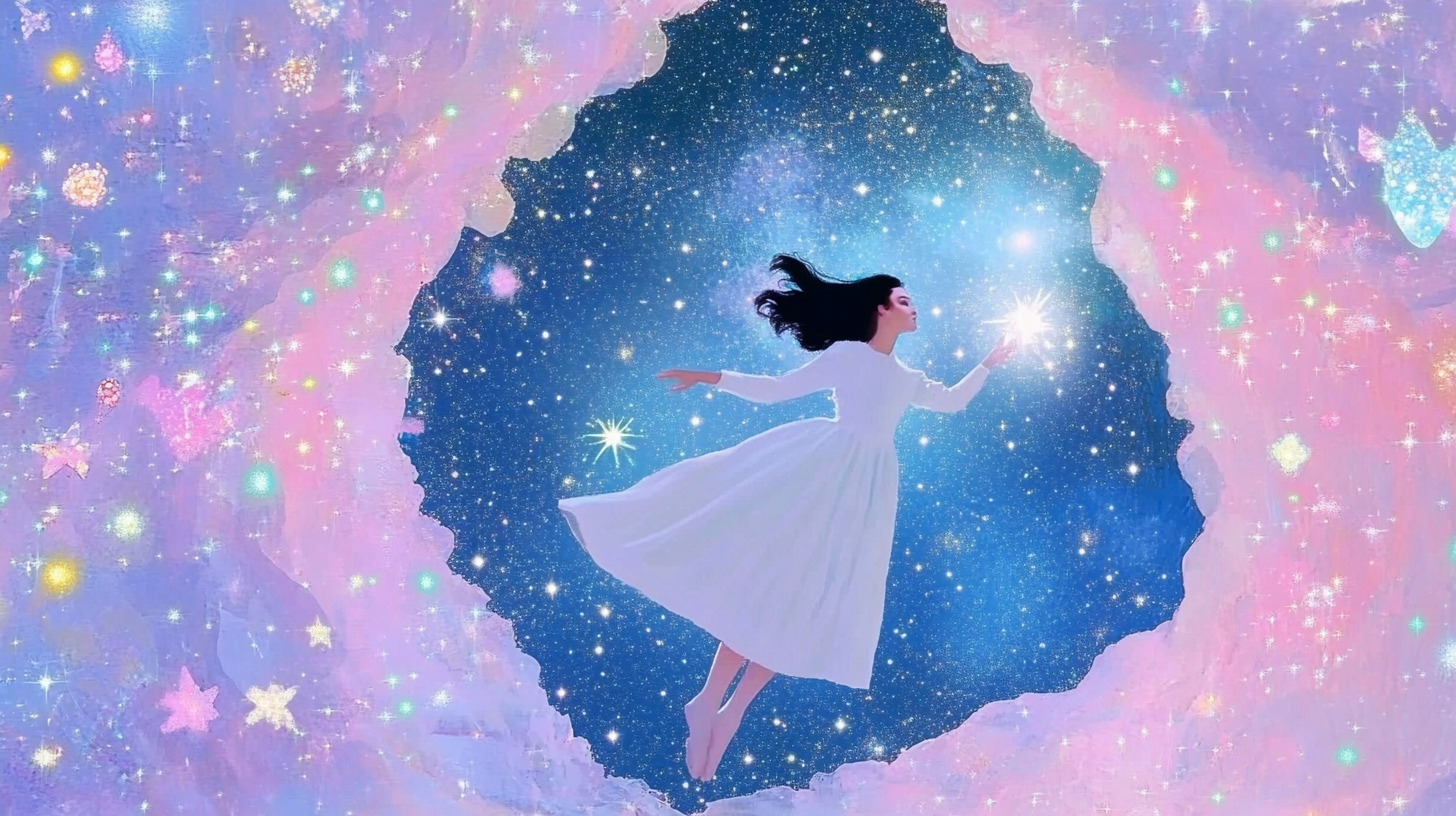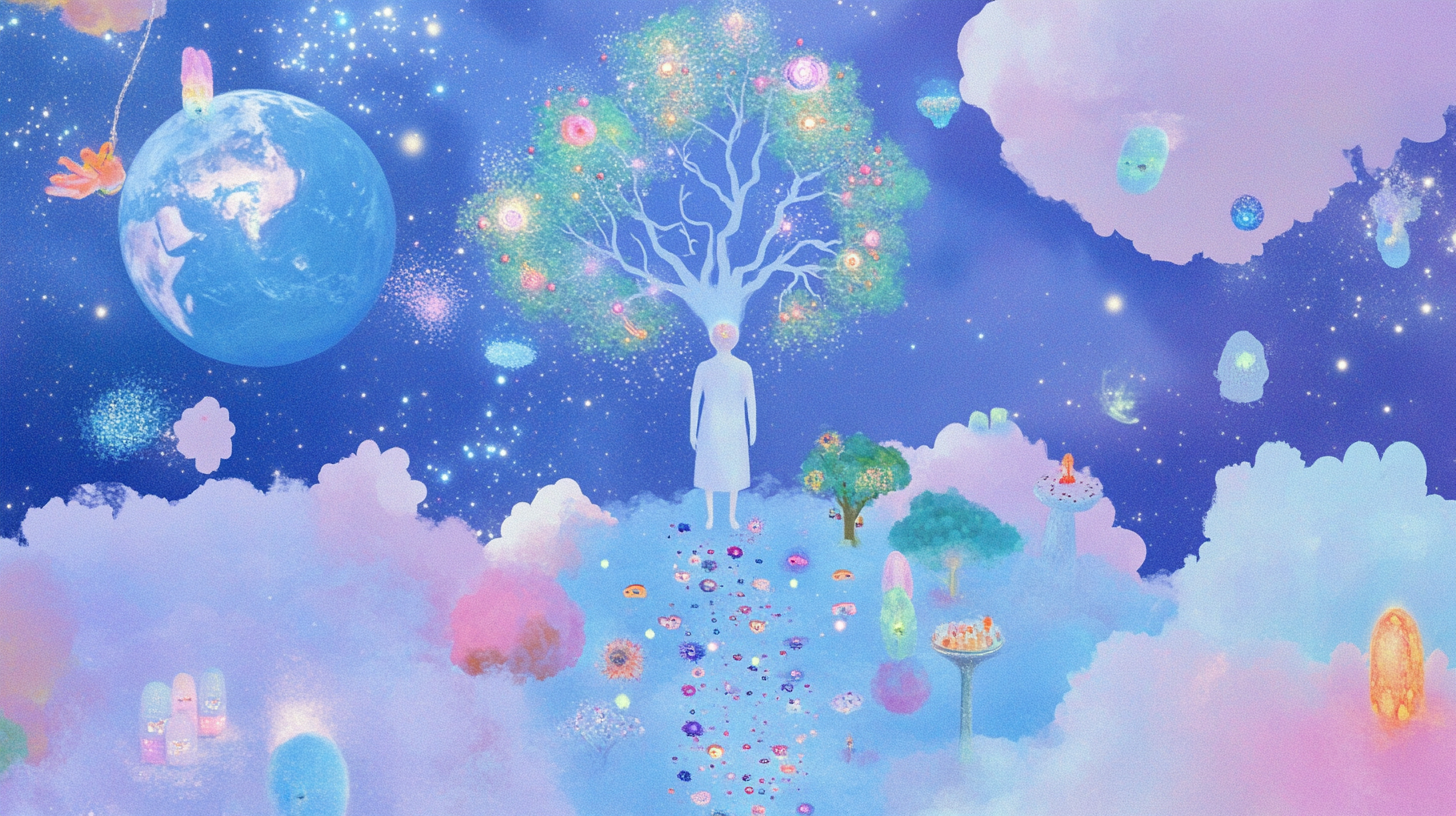What if everything you believed about being spiritual was actually making you sick? What if your relentless quest to be “good enough” was slowly destroying your body from the inside out? Anita Moorjani thought she had spirituality figured out—meditation, prayer, endless self-improvement, trying desperately to reduce her “bad karma.” She was the perfect spiritual student, constantly working to earn her worthiness.
Then stage-four lymphatic cancer brought her to death’s door, and in a 36-hour coma that doctors said she wouldn’t survive, she discovered the most shocking truth imaginable: her people-pleasing, fear-based spirituality wasn’t healing her—it was killing her.
But Anita didn’t just have a near-death experience. She had a complete revelation about the nature of existence that shattered everything she thought she knew about karma, purpose, and what it really means to be spiritual. When she returned to her body with tumors shrinking before doctors’ eyes, she brought back insights that challenge our deepest assumptions about suffering, service, and the very reason we’re here.
This isn’t another feel-good spiritual story. It’s a radical dismantling of why most of us are living our lives completely backwards—and why remembering who you really are might be the most dangerous thing you can do.
The Perfect Spiritual Student Who Was Slowly Dying

Growing up in 1980s Hong Kong as the daughter of Indian immigrants, Anita Moorjani was caught between worlds that seemed impossible to reconcile. Her British education showed her possibilities she’d never dreamed of—career, independence, the freedom to choose her own path. Her school friends were planning universities and travels, discussing futures that seemed limitless.
But at home, a different reality waited. In her traditional Indian family, women were groomed for one purpose: to be good wives in arranged marriages. Her worth was measured not by her intelligence or dreams, but by how well she could manage a household. “I’m going to admit here that I am terrible at housework,” Anita laughs now, “but my worth was measured by how good I was at housework.”
The clash came to a head when her parents arranged her engagement to a man who made it clear he didn’t want her to work. Everything inside her rebelled against this future of quiet subservience, of dreams deferred for someone else’s comfort. So she did something that scandalized her entire community: she ran away.
“I wanted to be free, I wanted to work and earn my own money, and I wanted to travel the world,” she explains. The aftermath was brutal. Her family faced shame, the prospective groom’s family was humiliated, and no Indian man would consider marrying her after such a public rejection of tradition.
The guilt from this act of self-preservation would follow her for decades. She’d convinced herself she’d created terrible karma that would haunt her through multiple lifetimes. To compensate, she doubled down on being spiritual—not the joyful, expansive kind of spirituality, but the fearful, rule-following variety that says you must constantly work to be worthy.
“I was always trying to be more spiritual, I always believed, oh, I need to be more spiritual, I need to meditate more, I need to pray more,” she recalls. Her spirituality became a desperate attempt to earn divine approval, to somehow balance the cosmic scales she believed she’d tipped against herself.
This wasn’t spirituality—it was spiritual perfectionism rooted in terror.
When Cancer Became Her Teacher

In 2002, a lump between Anita’s neck and shoulder revealed itself to be lymphatic cancer. But here’s what made her case extraordinary: she was simultaneously watching two people her exact age—her best friend and her husband’s brother-in-law—dying from the same disease despite receiving the most expensive treatments money could buy.
“Both of them were having the best treatments in the best cancer hospitals,” she explains. “One was being treated in the best cancer hospital in New York and the other in the best cancer hospital in Hong Kong. But both of them continued to deteriorate. From my perspective, it looked like every time they had a treatment, they were getting worse.”
So Anita made a radical choice: she refused conventional treatment and opted for natural therapies instead. For four years, she rode an exhausting roller coaster—getting better, then worse, then better again. She was actually improving under the care of an Ayurvedic doctor in India when well-meaning people convinced her to get scanned by a Western doctor “just to be sure.”
That doctor delivered a death sentence with clinical precision: three months to live.
The moment those words hit her consciousness, something catastrophic happened. “After I heard that, my health deteriorated dramatically, like dramatically,” she remembers. “My body stopped absorbing nutrition, I lost my appetite. My muscles started to deteriorate. I could not walk anymore. My lungs were filled with fluid.”
The power of belief had turned a healing body into a dying one almost overnight. The same mind that had sustained her through four years of alternative treatment had just been weaponized against her by six words from an authority figure: “You only have three months to live.”
By February 2, 2006, Anita’s body had given up the fight. She slipped into a coma that doctors warned her family she wouldn’t survive. Her husband rushed her to the hospital where medical staff delivered the verdict: these were her final hours.
But while everyone around her grieved for a woman who was slipping away, Anita was about to have the most awakening experience of her existence.
Leaving Behind Everything That Wasn’t Really Her
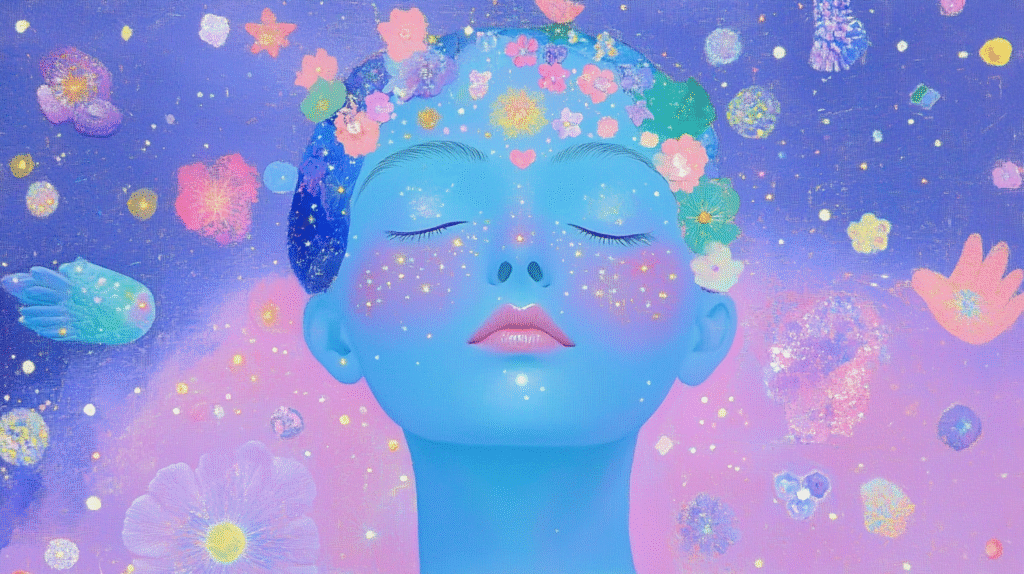
The moment Anita’s consciousness separated from her failing body, she felt something she hadn’t experienced in years: pure freedom. “I was feeling amazing. My spirit, my soul, whatever we want to call it had actually left my body. And I was feeling incredible and light and free.”
From this expanded state, she could observe everything happening around her unconscious form—her husband’s anguish, her family’s prayers, the doctors’ quiet consultations about her imminent death. She watched the doctor tell her husband outside her room that she wouldn’t make it through the night. She felt the nurses’ genuine compassion as they tried to comfort her family.
But the most remarkable part wasn’t the expanded awareness—it was what happened when she began to encounter beings from the non-physical realm. Her best friend, who had died of cancer two years earlier, was there to greet her. Her father, who had passed a decade before, was waiting with something she’d never felt from him during his earthly life: pure, unconditional love.
“I’d always felt I’d let my dad down and we’d always clashed and that he was disappointed in me,” she explains. “But here in this other realm, all I felt from him was pure, unconditional love.”
Communication happened not through words but through direct knowing, energy merging with energy. And in that merging, Anita discovered something that shattered her understanding of existence: “Not only do we leave behind our physical bodies, but we also leave behind our gender, our race, our culture, our religion, our beliefs. All of this is a here thing, not their thing.”
The father who had seemed so disappointed in her earthly choices was revealed to be just as much a victim of cultural conditioning as she was, doing his best within the constraints of the system he’d inherited. The shame she’d carried about running away from arranged marriage? Gone. The guilt about disappointing her family? Irrelevant.
Only essence remained—and that essence was already perfect.
The Life Review That Rewrote Everything She Thought About Karma
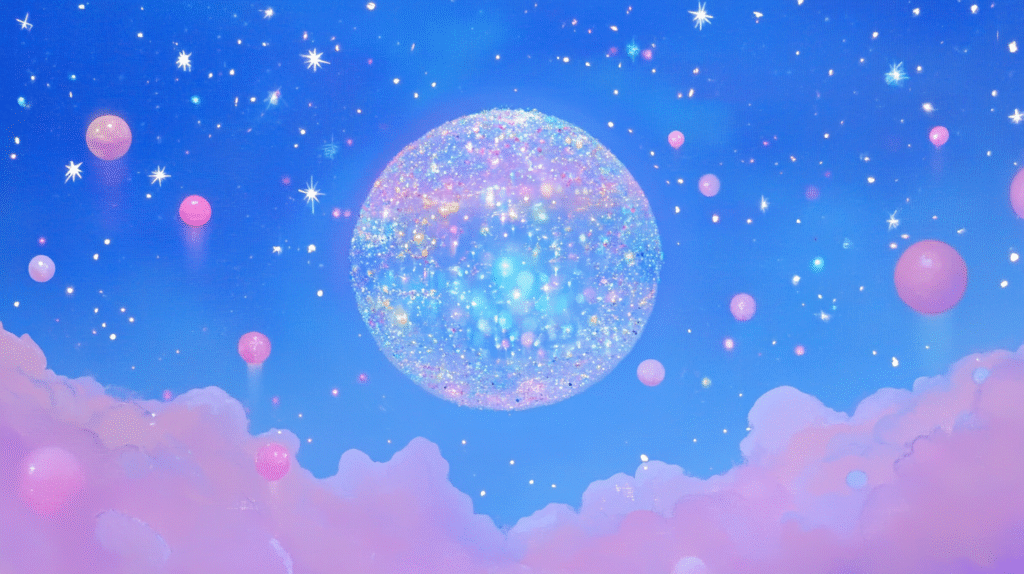
What happened next demolished every assumption Anita had ever made about karma, spirituality, and the nature of moral consequences. In this expanded state, she experienced what she calls a life tapestry—not just reviewing this current incarnation, but seeing how all her soul’s lifetimes connected and contributed to a larger journey.
She could feel the emotions of everyone affected by her choices, including the people currently surrounding her dying body in the hospital. But the biggest shock came when she reviewed actions she’d spent decades feeling guilty about.
The arranged marriage she’d run away from—the source of so much shame and self-recrimination—was revealed to have inspired other young Indian women to stand up for themselves. “Look at all these young Indian women who were inspired by what you did,” she was shown, “and who have actually said no before getting into that situation because they’re like, ‘I don’t want to get into a situation like Anita did.'”
What she’d thought was selfish rebellion that created terrible karma was actually soul-level service. Her act of authenticity had given other women permission to choose freedom over cultural expectations. The guilt she’d carried for twenty years was based on a complete misunderstanding of how spiritual growth actually works.
“What I realized was that it was the complete opposite,” she explains. “I was meant to express myself fully, not suppress myself. I was meant to come here and be a full expression of this soul that chose to come into this body.”
The karma she’d been trying so desperately to balance was already balanced. In fact, her attempts to be “more spiritual” through self-sacrifice and people-pleasing were what had been making her sick. Her body’s rebellion through cancer was her soul’s way of saying, “This is not who you are.”
The fundamental flaw wasn’t in her actions—it was in the belief that she needed to constantly work at being good enough. “We really have to know that, hey, my soul is amazing. My soul is a facet of God,” she realized. The spiritual perfection she’d been trying so hard to achieve was her natural state, not something to be earned through suffering.
The Holographic Reality Where Time Doesn’t Exist
Anita’s description of the space she found herself in reads like something from advanced physics mixed with mystical experience. “It was wherever I wanted it to be,” she explains. When she focused on her husband Danny, she could see other lifetimes they’d shared together and potential futures that hadn’t yet manifested.
“It’s exactly like a holodeck,” she says, referencing Star Trek’s virtual reality chambers. “You walk in and you’re immersed in it, it’s all around you. And this is why I often say that time is not linear on the other side, because I could access the future, I could access the past, I could access any life that pertained to my experiences right here.”
This wasn’t just expanded awareness—it was access to what she calls her soul’s complete journey across multiple incarnations. Every lifetime her soul had ever lived was available as information to inform her current choices. Past, present, and future existed simultaneously in one vast now that contained infinite possibility.
When she focused on her brother, who had flown from India to be with her before she died, she immediately saw a lifetime where their roles were reversed—where she was much older and protective of him. “Even in this lifetime, even though he’s older, I feel protective of him,” she notes, recognizing how past-life dynamics were playing out in current relationships.
But it was when she focused on her husband that everything changed. She saw a scene from their future—a vision of them fulfilling a purpose together that hadn’t yet manifested in physical reality. “I understood that we still had work to do together here. And I hadn’t fulfilled it yet. And that if I didn’t come back to fulfill it, if I crossed over, he wouldn’t be able to fulfill his side of the purpose.”
This revealed something crucial about how soul contracts actually work—not as rigid predetermined scripts, but as collaborative intentions that require conscious participation to manifest.
Divine Beings Who Appear However You Need Them
When Anita encountered what most people would call divine beings or guides, she discovered something that challenges every organized religion’s claims to exclusive truth. These beings appeared to her in whatever form her consciousness could best relate to—Krishna, Buddha, Jesus, Quan Yin—but underneath every appearance was the same essence: pure love without gender, form, or religious affiliation.
“If I wanted it to be Krishna, it would be Krishna. If I wanted it to be Buddha, it was Buddha. If I wanted it to be Jesus, that’s who it was. But it was pure love essence, it was neither male nor female. It wasn’t a physical being,” she explains.
This personalized approach to divine encounter reflects something profound about how consciousness works. Rather than imposing a one-size-fits-all spiritual experience, the higher dimensions apparently customize themselves to each individual’s cultural background and spiritual framework.
Anita’s multicultural upbringing—Hindu parents, Chinese city, British education, exposure to Buddhism, Christianity, and Eastern philosophy—created what she calls “a very weird and eclectic near-death experience.” Instead of seeing just one religious figure, she had access to the universal love that manifests through all spiritual traditions.
But even more profound was the overarching presence she describes as pure consciousness itself—not a person or deity, but the collective awareness of every being in the universe put together. “When we are in this spirit form, that is also informing us,” she explains. “That is where the unconditional love comes from. That is what I would call God. It’s not a person, it has no gender, but it’s that energy that all of us have access to.”
This reveals something revolutionary: the source of divine love isn’t separate from us, but is the very fabric of what we are when we’re not identified with form and story.
The Benevolent Universe That Celebrates Your Courage
One of the most striking aspects of Anita’s experience was the reception she received on the other side. Instead of judgment or punishment for her earthly “failures,” she was greeted with what felt like a hero’s welcome.
“I felt as though all my loved ones and everybody, my guides, whoever you want to call like source energy itself, was revering me, it was like a big welcome back party,” she describes. “And what I realized is, they revere us, it’s like, you get kudos for coming through this journey.”
This completely reframes the relationship between physical incarnation and spiritual development. Rather than seeing Earth as a punishment dimension or testing ground where we must prove our worthiness, Anita discovered it’s viewed from the other side as an incredibly challenging volunteer mission that deserves massive respect.
“This is a very challenging process of learning and growing and going through all of this stuff that you can only do in this dimension,” she explains. The difficulties of human existence—the forgetting, the limitations, the emotional intensity—aren’t cosmic mistakes but features of a sophisticated growth system.
There’s nothing to fear in the afterlife because the universe is fundamentally benevolent. Even people who cause great harm are still unconditionally loved on the other side, though this doesn’t mean their actions don’t have consequences. It means that love and wisdom together create the context for true healing and evolution rather than punishment.
The perspective shift is staggering: instead of seeing yourself as a potentially bad person trying to become good, you can recognize yourself as a fundamentally divine being having a temporary human experience for the sake of growth and service.
The Purpose That Changes Everything
As Anita basked in this realm of pure love and acceptance, part of her never wanted to return to the struggle of human existence. But then she began to understand something that transformed her entire perspective on why souls choose to incarnate.
“I could see that I was meant to impact a lot of people, but I didn’t know how I was going to impact them,” she explains. “I could see that in one way it was going to be a life of service, but not in the old way that I used to think service was. It was a way of being of service to people while honoring myself and my own physical body and not martyring myself for other people the way I used to.”
This revealed the fatal flaw in her previous approach to spirituality. She’d spent the first part of her life learning to see God in everyone else’s eyes while completely failing to see the God in her own eyes. Real service doesn’t come from depleting yourself for others—it comes from being such a full expression of your authentic nature that you inspire others to remember theirs.
“You came here with the intention of making the world a better place,” her guides explained. “And in the first round of your life, you had gone about it the wrong way, thinking that making the world a better place meant being a martyr and depleting yourself and being of service to everyone around you except you.”
The revolutionary insight: you serve the world most powerfully by being unapologetically yourself, not by trying to be what others expect you to be. Every moment spent repressing your authentic nature is a moment spent working against your soul’s intention.
When Anita finally understood this, she knew she could return to her body—as long as she remembered that she was also a facet of God and always kept that awareness alive.
The Return With a Message That Changes Everything
The transition back to physical consciousness was seamless and immediate. “The last thing my dad said to me was, ‘Now that you know the truth of who you really are, go back and live your life fearlessly,'” Anita recalls. “As soon as he said that, it felt like my eyes started to open in my physical body. It was like I drifted. I drifted into my body, seamlessly.”
But she wasn’t fully back in this world yet. Still bridging both dimensions, she began speaking to her family about her father’s presence and his message that she was going to be okay. When the doctor arrived—a man she’d never met because she’d entered the hospital in a coma—she addressed him by name.
“Good afternoon, Dr. Chan,” she said. When he asked how she knew his name, she explained that he’d been treating her. “But you were in the coma,” he protested. After he left the room, she told her family about his conversation with her husband outside her door—a conversation that had happened while she was unconscious.
The healing that followed defied every medical protocol. Tumors the size of golf balls that had been growing rapidly throughout her body began shrinking immediately. Within three weeks, doctors could find no trace of cancer anywhere in her system. “I started to just see them shrink very quickly,” she explains. “They didn’t know what to say, they didn’t know what to write in my medical records. They were astounded.”
But the medical community’s reaction revealed something troubling about how we handle miraculous healing. Instead of curiosity about what had happened, there was denial and attempts to rationalize it away. They wondered if they’d misdiagnosed her, despite four years of documented progression and visible tumors.
Anita wanted to shout her revelations from the rooftops—that everyone is a piece of God, that we’re more powerful than we’ve been led to believe, that there’s often a deeper reason behind illness. But she quickly learned that people weren’t ready to hear these truths. “I was seen as the crazy person,” she recalls. “They would say what happened to you is amazing, and you’ve had a spontaneous remission, and it was miraculous. But it’s a one-off. They wanted me to believe that I was the lucky one.”
The Courage to Come Out of the Spiritual Closet
For a while, Anita did what she’d always done—she repressed herself to make others comfortable. The insights that had saved her life were carefully hidden because sharing them made people uncomfortable or skeptical. She went back to being careful about who she shared with, just like before her experience.
But this time was different. This time she knew who she really was, and complete self-suppression was no longer possible. “I thought, I can’t keep it to myself, I’m not going to do what I did before and just repress myself again,” she decided.
Her brother discovered a website called NDERF (Near Death Experience Research Foundation) with thousands of similar testimonies. Reading other people’s accounts, Anita realized she wasn’t alone or crazy—she was part of a growing number of people having these consciousness-expanding experiences.
When she submitted her story to the site, it caught the attention of Dr. Jeffrey Long, an oncologist who called it “the most profound near death experience I have ever read.” He asked permission to feature it on the homepage, and from there it gained global attention among people interested in consciousness research.
The validation that followed was extraordinary. Another oncologist flew from California to Hong Kong to examine her medical records personally. “Lady, whichever way I look at it, you should be dead,” he told her. “You should write a book on this and I will write the medical testimony to give it validation.”
That medical backing gave her the credibility to share her story more widely, which eventually led to Wayne Dyer discovering her account and insisting that Hay House publish her book. “I am going to make you world known. I’m going to make your book a New York Times bestseller,” he promised—and delivered on both counts.
Her first book was translated into 45 languages, reaching millions of people hungry for a new understanding of spirituality that doesn’t require self-sacrifice and fear.
Living as a Facet of God in Human Form
The practical challenge of integrating such profound insights into daily human existence cannot be overstated. Anita returned to a world that operates on completely different principles than what she’d experienced on the other side. The contrast between cosmic consciousness and human limitations can be jarring.
“Down here it is muddy,” as the interviewer notes. “Even the best of us lose our way. You know inside your gut that you should do something, but then you think, ‘What will my mom think? What will my dad think? What will my spouse think? Should I leave that job?’ You question constantly.”
Anita’s solution isn’t to transcend human limitations but to meet them from a place of remembered truth. “Live your life fearlessly” doesn’t mean reckless behavior—it means “be unafraid to unapologetically be you. Because to repress yourself is really sending yourself the message that there’s something wrong with you that you have to repress.”
This creates a radical shift in how to approach decision-making. Instead of asking “What should I do to avoid consequences?” the question becomes “What makes my heart sing? What do I love to do?” Instead of choosing from fear, you choose from love—not because it’s morally superior, but because love-based choices align with your soul’s intention while fear-based choices work against it.
Her definition of God provides the foundation for this approach: “God is the infinite energy that runs through all of us. We are all a facet of God. It’s like a mirror ball with billions and billions of little mirror tiles, and each of those mirror tiles is one of us, and we’re all connected to make this bright, shiny ball, and that is God.”
The implications are staggering. When you tune in intuitively, you’re accessing information from this infinite network of connected consciousness. Your aha moments, downloads, and intuitive hits aren’t coming from your isolated human mind—they’re coming from the collective wisdom of all consciousness.
The Revolutionary Definition of Spiritual Success
Anita’s near-death experience reveals something that most spiritual teachings get backwards: the goal isn’t to become more spiritual—it’s to stop pretending you’re not already spiritual. “You don’t have to work at being spiritual. You don’t have to work at being good. You are already spiritual, you were born spiritual. Just let that spirit shine.”
This completely reframes what spiritual success looks like. Instead of measuring progress by how much you’ve sacrificed, how selfless you’ve become, or how many spiritual practices you’ve mastered, you measure it by how authentically you’re expressing your essential nature.
Real spirituality isn’t about perfecting yourself—it’s about remembering that you’re already perfect and then having the courage to live from that truth. It’s not about earning God’s love through good behavior—it’s about recognizing that you are God’s love temporarily wearing a human costume.
Her playful answer to “What is the ultimate purpose of life?”—”to eat chocolate”—contains profound wisdom. Life is meant to be experienced with joy, not endured as a test you might fail. The deeper purpose is to discover that joy, love, and authentic expression are your natural state, not rewards you have to earn.
When you approach existence from this perspective, everything changes. Challenges become opportunities for growth rather than punishments for past mistakes. Relationships become chances to see God in each other’s eyes—including your own. Work becomes a vehicle for expressing your unique gifts rather than just paying bills.
The fear that drives most spiritual seeking dissolves when you realize there’s nothing to be afraid of. The universe is fundamentally benevolent, your essence is already perfect, and every experience—even the difficult ones—serves your soul’s evolution.
The Ripple Effect of One Woman’s Courage
Today, millions of people around the world have been touched by Anita’s story, but the real impact isn’t in the numbers—it’s in the permission her experience gives others to trust their own inner knowing over external authorities.
Every person who chooses authenticity over approval, who follows their heart despite cultural pressure, who refuses to dim their light to make others comfortable—they’re carrying forward the revolution Anita sparked by refusing to die the wrong way.
Her journey from people-pleasing doormat to fearless authentic teacher shows what becomes possible when you stop trying to earn love and start remembering you’re made of it. In a world that profits from our insecurity, that tells us we’re not enough as we are, Anita’s message is quietly radical: You are more powerful than you’ve been led to believe. You have nothing to fear. You don’t have to work at being spiritual—you already are.
The cancer that nearly killed her became the gateway to remembering who she really was. The cultural conditioning that had oppressed her became the contrast that allowed her to choose freedom. The death sentence that destroyed her hope became the invitation to discover hope was never needed—joy was her natural state all along.
This isn’t just Anita’s story—it’s a blueprint for anyone who’s ever felt caught between who they really are and who they think they should be. The only question left is whether you’ll have the courage to live like you believe it.
In the end, that might be the most radical act possible: simply being yourself, fearlessly and unapologetically, trusting that your authentic expression is exactly what the world needs most.
If you enjoy using and/or creating your own spiritual resources, I invite you to visit my shop where you will find a variety of digital downloads to support your journey, including:
~ Affirmation Cards
~ Tarot & Oracle Cards
~ LOA Printables
~ Editable Templates
~ Digital Papers & Clipart
~ Printable Journals, Calendars, Trackers
And more!
To save 35% on all my digital products and receive occasional updates and free digital goodies, please consider joining my mailing list.
For unique spirituality and manifesting merch, please also check out Amazon and Redbubble.
